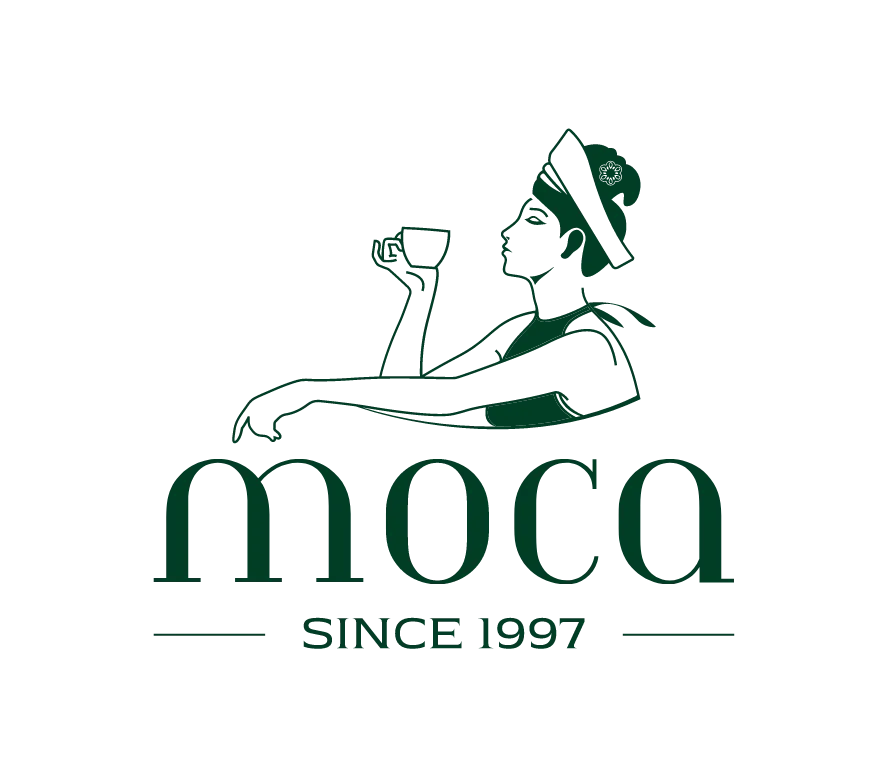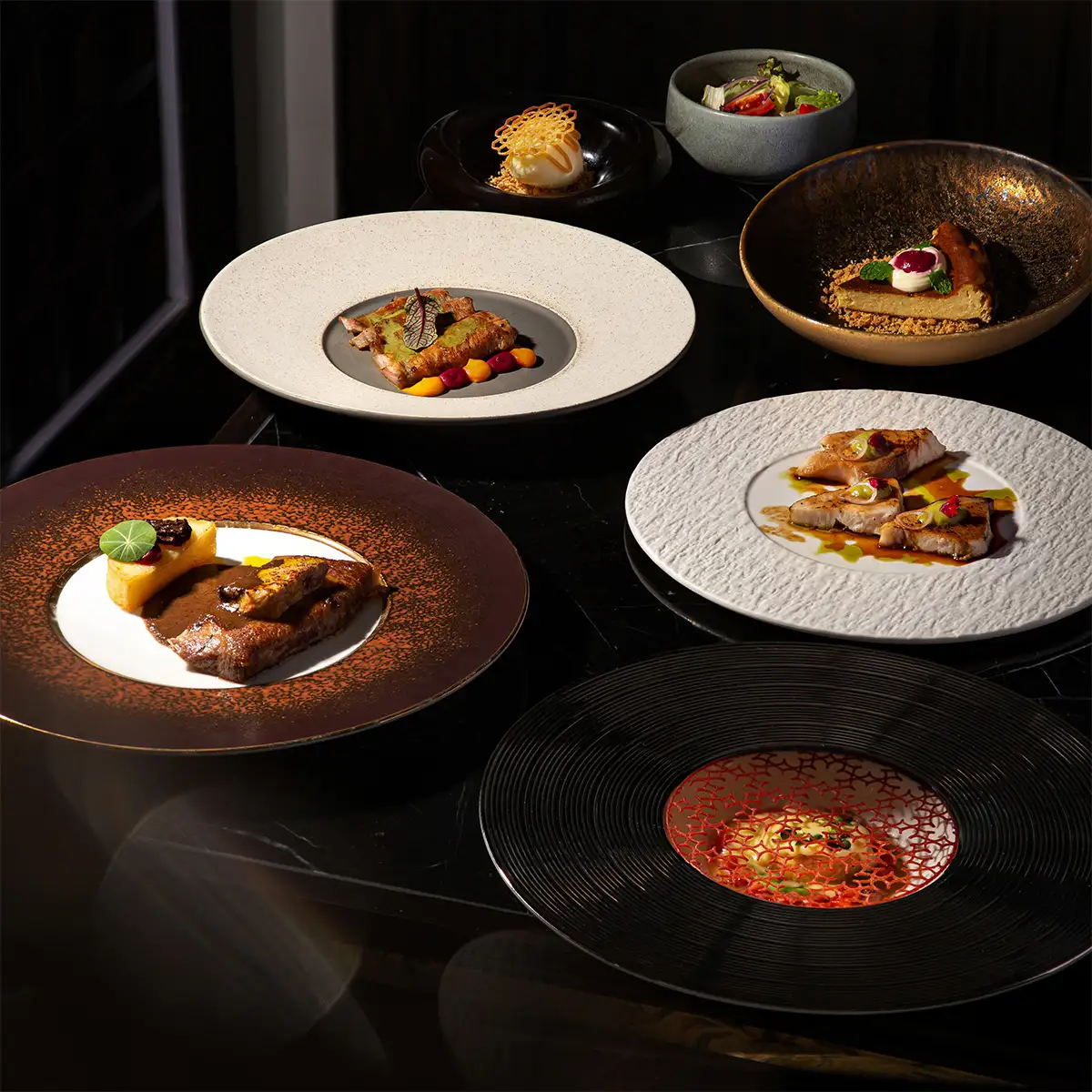Historically, fine dining has often been associated with meat and seafood. However, the culinary world is undergoing a transformation, and vegan Michelin restaurants are at the forefront of this evolution. As plant-based cuisine gains popularity and respect, even the prestigious Michelin Guide is recognizing the innovation and excellence in vegetarian gastronomy. This guide highlights the most outstanding Vegetarian Michelin restaurants around the world—proving that vegetarian fine dining is not only a viable option, but a powerful and sophisticated culinary movement.
1. The rise of vegetarian fine dining
The culinary world is experiencing a remarkable shift, driven by the increasing popularity of plant-based diets. This transformation is fueled by growing awareness of the health benefits of vegetarian and vegan lifestyles, heightened concerns about the environmental impact of animal agriculture, and a rising ethical consciousness surrounding animal welfare. In response, the demand for high-quality vegetarian and vegan dining options has soared, prompting many chefs to reimagine their approach to food.
This evolution goes far beyond a passing trend—it reflects a deep change in culinary philosophy. Today’s chefs are redefining fine dining by highlighting the artistry of vegetables, grains, legumes, and fruits. Using advanced cooking techniques, imaginative flavor profiles, and seasonal, locally sourced ingredients, they are elevating vegetarian cuisine to an unprecedented level of refinement. Vegetarian Michelin restaurants stand at the forefront of this movement, offering exceptional dishes that exemplify both creativity and conscience.
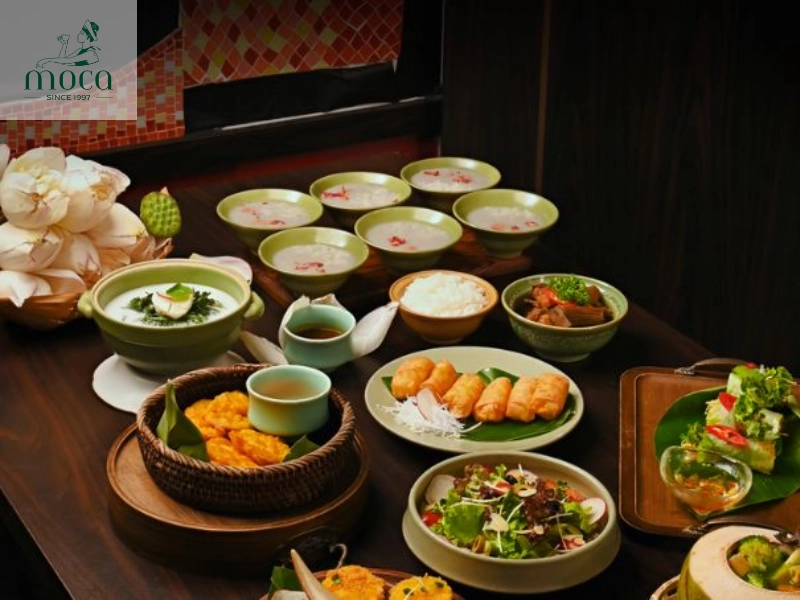
The essence of vegetarian fine dining at Michelin restaurants
Sustainability and ethical sourcing are now integral to the identity of fine dining. Diners increasingly seek out establishments that minimize food waste, support local farmers, and uphold environmentally responsible practices. Michelin star vegetarian restaurants often set the standard in these areas, combining culinary excellence with a strong commitment to the planet.
According to a report by Grand View Research, the global vegan food market was valued at USD 26.16 billion in 2021 and is projected to grow at a CAGR of 9.6% from 2022 to 2030. This significant growth reflects the rising mainstream appeal of plant-based diets and further accelerates interest in both vegan Michelin restaurants and innovative experiences at a restaurant vegan nice Michelin level. As this movement gains momentum, Vegetarian Michelin restaurants continue to shape the future of fine dining with bold, sustainable, and inspiring cuisine.
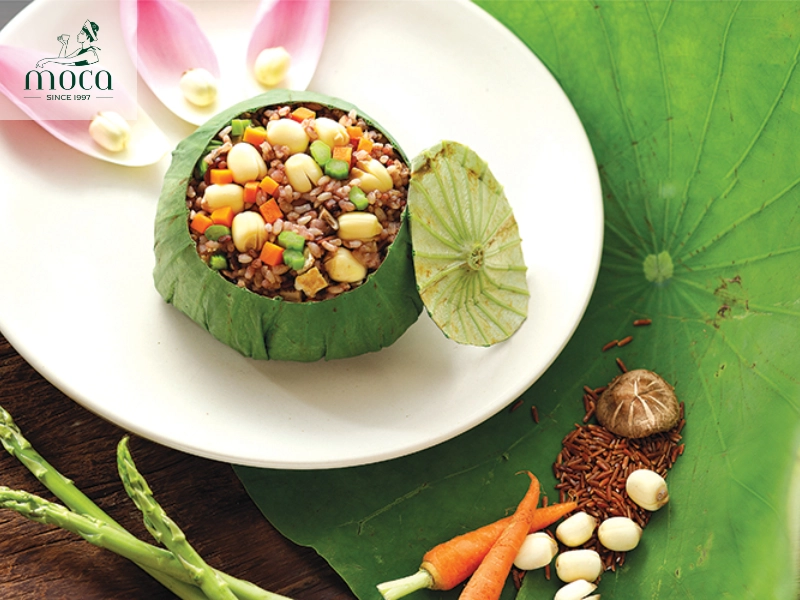
Sustainable cuisine leading the fine dining trend.
Learn more: Deciphering the Michelin Menu: A Guide to Understanding Fine Dining Cuisine
2. What makes a vegetarian restaurant Michelin-Worthy?
Vegetarian Michelin restaurants are evaluated by Michelin inspectors using the same meticulous criteria applied to all fine dining establishments. These include five core standards: quality of ingredients, mastery of flavor and cooking techniques, the personality of the chef in the cuisine, value for money, and consistency between visits. However, when it comes to vegetarian cuisine, these criteria take on a distinctive dimension that highlights the chef’s creativity and the richness of plant-based cooking.
- Quality of ingredients: In vegetarian dining, this means an uncompromising focus on freshness, seasonality, and the sourcing of rare or exceptional vegetables. Many Vegetarian Michelin restaurants form close partnerships with local farmers and artisanal producers to secure premium ingredients that reflect the region’s terroir.
- Mastery of flavor and cooking techniques: Creating depth and complexity from plant-based ingredients requires innovative culinary methods. Top chefs use techniques like fermentation, smoking, and sous vide to unlock bold, nuanced flavors. Every element—from texture to temperature—must be carefully orchestrated to surprise and delight the palate.
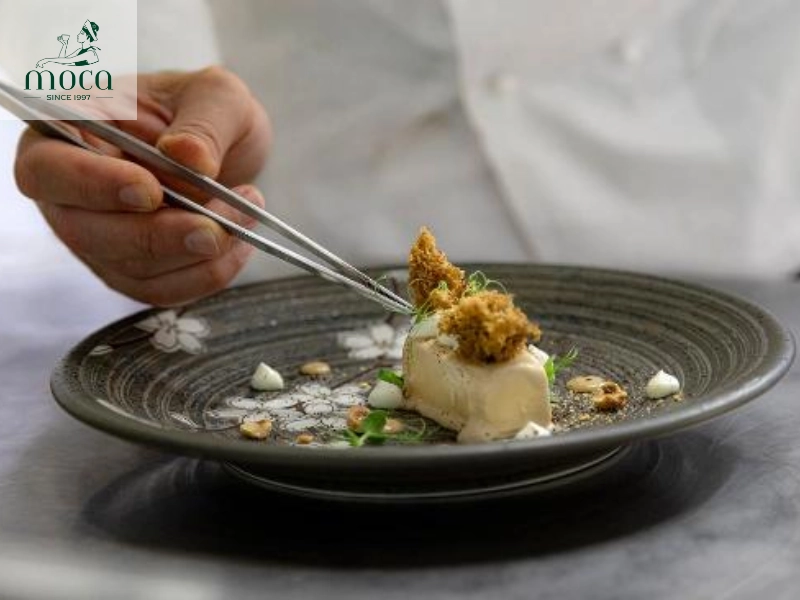
Artful plant-based dishes that meet Michelin’s highest standards
- The personality of the chef in the cuisine: Michelin inspectors value individuality, and for vegetarian chefs, this means expressing a unique culinary vision through their dishes. A personal, passionate approach to vegetables and plant-based combinations must shine through, offering diners something memorable and meaningful.
- Value for money: While vegetarian dishes are sometimes seen as simpler or less costly, Vegetarian Michelin restaurants challenge this notion by offering a refined, immersive experience. Everything from ambiance to presentation is carefully curated to ensure the price reflects the quality and creativity on the plate.
- Consistency between visits: Delivering excellence every time is non-negotiable for any Michelin-starred venue. Whether it’s the first visit or the fifth, guests should expect the same level of mastery and service.
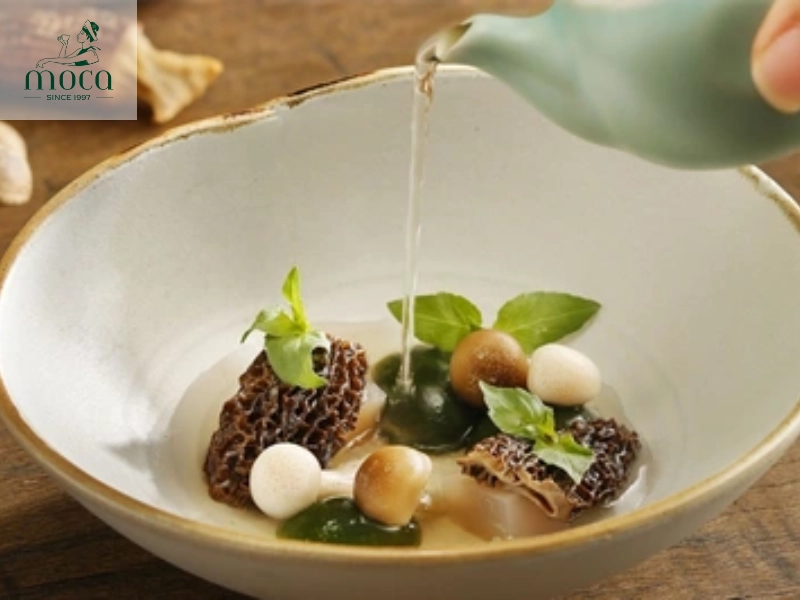
Creativity, technique, and flavor define Michelin-worthy vegetarian cuisine.
Ultimately, what sets Michelin-worthy vegetarian restaurants apart is their ability to rival the finest meat-based establishments in creativity, execution, and experience. A thoughtfully composed dish—like perfectly roasted heirloom carrots glazed with smoked paprika, served on a velvety cashew puree and finished with toasted pumpkin seeds—demonstrates excellence across all these criteria. It's this kind of ingenuity and finesse that earns a place in the Michelin Guide, even for a restaurant vegan nice Michelin in focus.
3. Notable vegetarian restaurants (potential Michelin recognition) around the world
While officially confirmed Vegetarian Michelin restaurants remain relatively rare, a growing number of plant-based establishments are pushing culinary boundaries and gaining serious attention from food critics and diners alike. In Vietnam, in particular, several restaurants stand out for their innovation, cultural authenticity, and exceptional quality—making them strong contenders for future inclusion in the prestigious Michelin Guide.
- Cồ Đàm (Vietnam): With its serene ambiance inspired by Buddhist and Champa cultural aesthetics, Cồ Đàm offers a mindful and immersive dining experience. Surrounded by terracotta Buddhas and tranquil ponds, guests enjoy beautifully plated vegetarian dishes that highlight the diversity and depth of Vietnamese cuisine. While specific chef details are scarce, the restaurant’s emphasis on authenticity and refined plant-based cooking aligns well with what Michelin star vegetarian restaurants are recognized for.
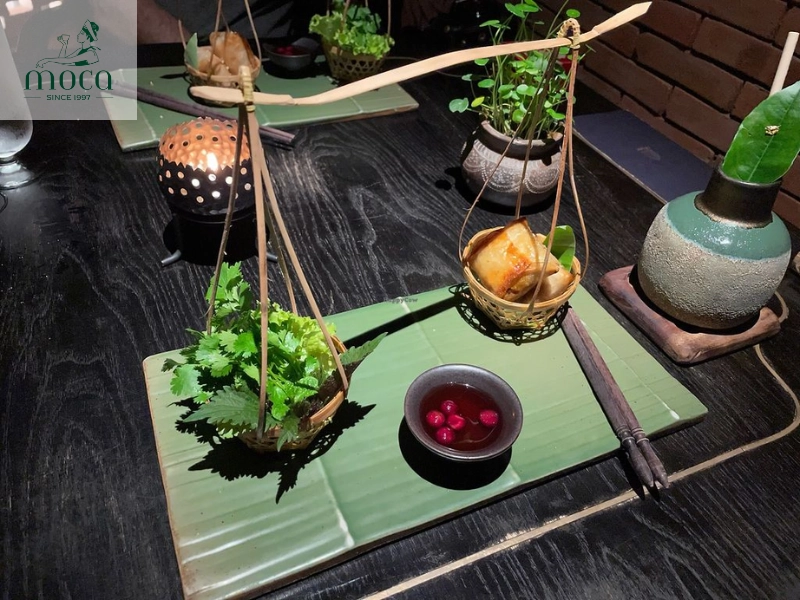
Cồ Đàm – refined vegetarian cuisine in a serene, culturally rich setting.
- La Badiane (Vietnam): A seamless fusion of French and Vietnamese culinary artistry, La Badiane is known for its elegant vegetarian creations using fresh, high-quality ingredients. Signature dishes such as Dalat green asparagus salad and cheese spring rolls with dried fruits reveal the chef’s finesse in marrying Eastern and Western flavors. This level of creativity and technical skill positions La Badiane as a strong candidate among future Vegetarian Michelin restaurants.
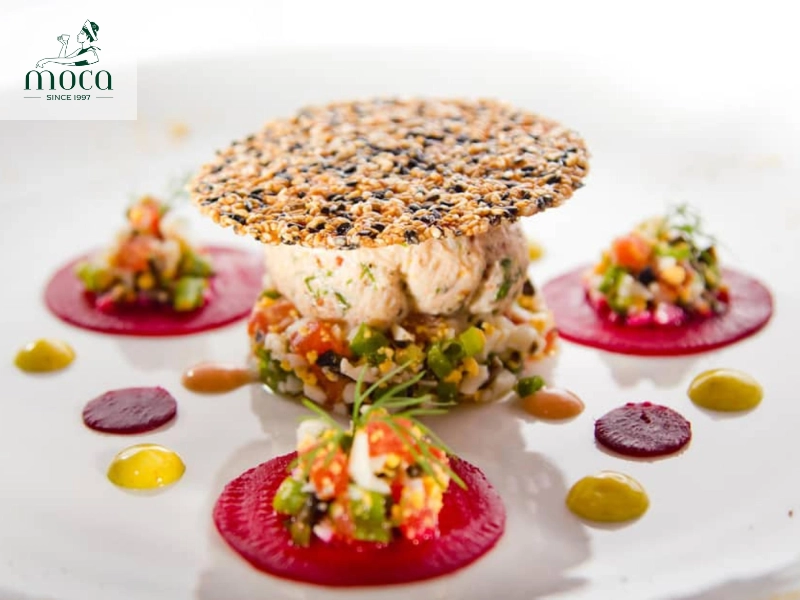
La Badiane – where French and Vietnamese culinary artistry meet in elegant vegetarian dishes.
- Ngon Garden (Vietnam): Nestled by the scenic Thien Quang Lake, Ngon Garden celebrates traditional Vietnamese vegetarian cuisine. From vibrant salads and fresh spring rolls to nourishing mushroom hot pots, the restaurant prioritizes seasonal, locally sourced ingredients. Its warm, welcoming atmosphere and commitment to authentic flavors make it a standout in the plant-based dining scene—and a potential future entry among vegan Michelin restaurants in the region.
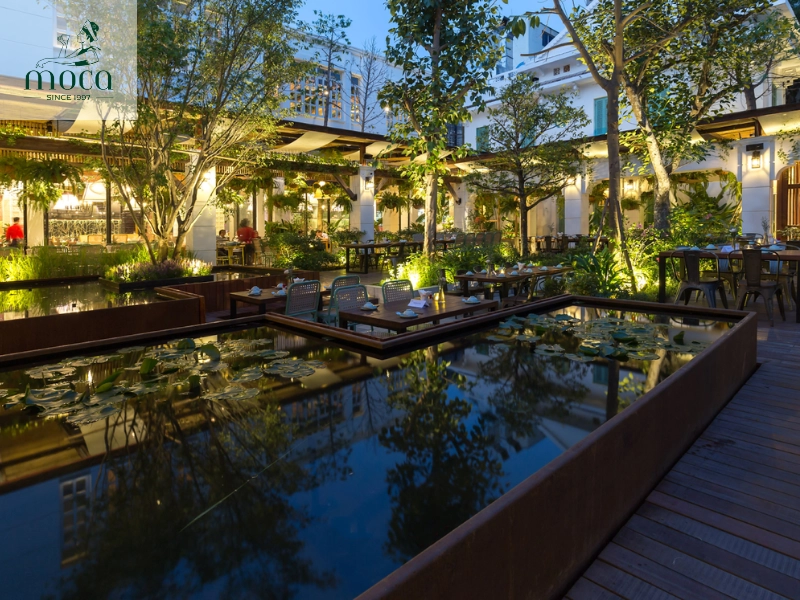
Ngon Garden – traditional Vietnamese vegetarian cuisine by the peaceful Thien Quang Lake.
- Quan An Ngon (Vietnam): Beloved for its cozy charm and consistently delicious vegetarian offerings, Quan An Ngon excels in showcasing the simplicity and richness of traditional Vietnamese cooking. Highlights include fried lotus root, vegetarian spring rolls, and an array of flavorful vegetable dishes prepared with care. Its focus on honest flavors and traditional techniques speaks to the heart of what a restaurant vegan nice Michelin listing could embody.
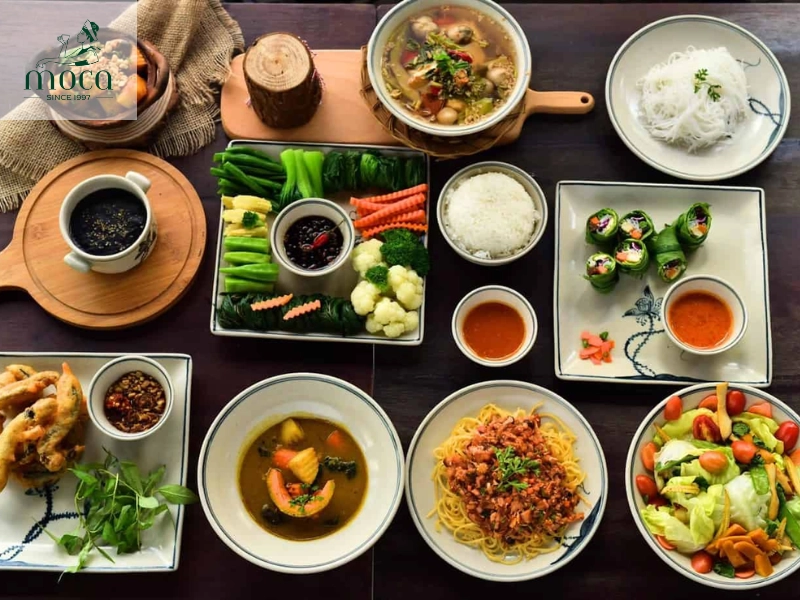
Quan An Ngon – simple, authentic Vietnamese vegetarian cuisine.
- Sente – The Flavor of Lotus (Vietnam): Specializing in dishes that feature lotus seeds—a symbol of purity and a cherished ingredient in Vietnamese cuisine—Sente delivers a unique vegetarian dining experience. Dishes such as lotus seed and chestnut soup, lotus mushroom steamed eggs, and lotus-stuffed spring rolls demonstrate creativity and technical precision. With a clear culinary identity and a deep respect for tradition, Sente has the makings of a future Michelin star vegetarian restaurant.
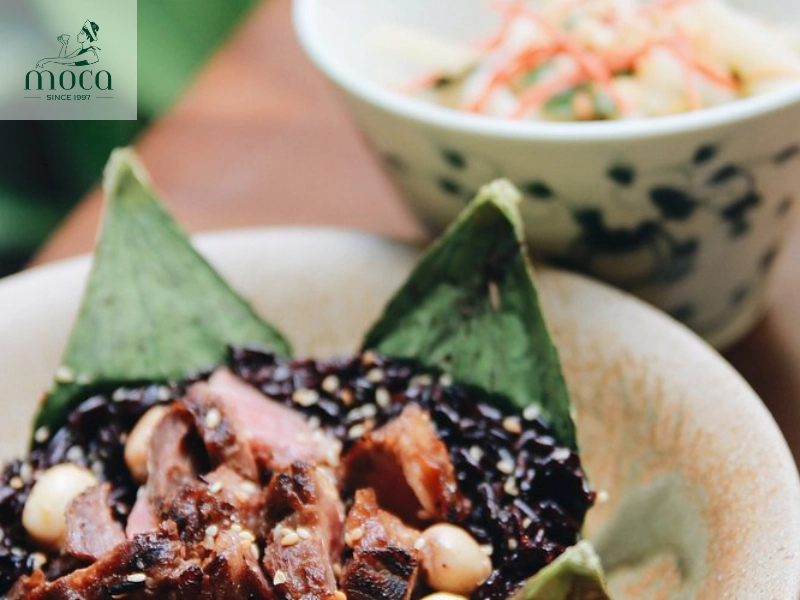
Sente – refined vegetarian cuisine inspired by the purity of lotus.
It's worth noting that inclusion in the Michelin Guide is determined by anonymous, professional evaluations, and selections are updated regularly. While these restaurants have not yet received official stars, their dedication to excellence, sustainability, and innovation places them firmly on the radar of anyone following the rise of Vegetarian Michelin restaurants around the globe.
Learn more: Romantic Michelin Restaurants For An Unforgettable Date Night
4. The challenges and opportunities for vegetarian chefs
Vegetarian chefs often face a unique set of challenges in gaining recognition and respect within the traditionally meat-focused world of fine dining. Historically, the culinary elite has been shaped by dishes centered around meat and seafood, contributing to the misconception that plant-based cuisine lacks the sophistication and depth required to deliver a truly exceptional experience. This long-standing bias can make it more difficult for vegetarian chefs to secure funding, attract high-end clientele, or earn a place in guides like the Michelin star vegetarian restaurant listings.
In addition to industry hurdles, there’s often skepticism from diners who may view vegetarian cuisine as bland, limited, or overly simplistic. Overcoming these perceptions requires more than just skill—it demands relentless creativity, innovation, and a willingness to challenge expectations. For chefs aiming to reach the level of Vegetarian Michelin restaurants, it's not enough to replicate meat-based dishes with substitutes. Instead, they must celebrate the natural flavors and textures of vegetables, legumes, grains, and fruits, transforming them into dishes that are as visually stunning as they are satisfying.
Yet within these challenges lies incredible opportunity. The global shift toward plant-based diets has opened new doors for chefs to pioneer bold, creative expressions of vegetarian and vegan cuisine. With growing awareness of sustainability, environmental responsibility, and wellness, diners are increasingly seeking out food that aligns with their values—paving the way for chefs to redefine luxury dining through a plant-forward lens.
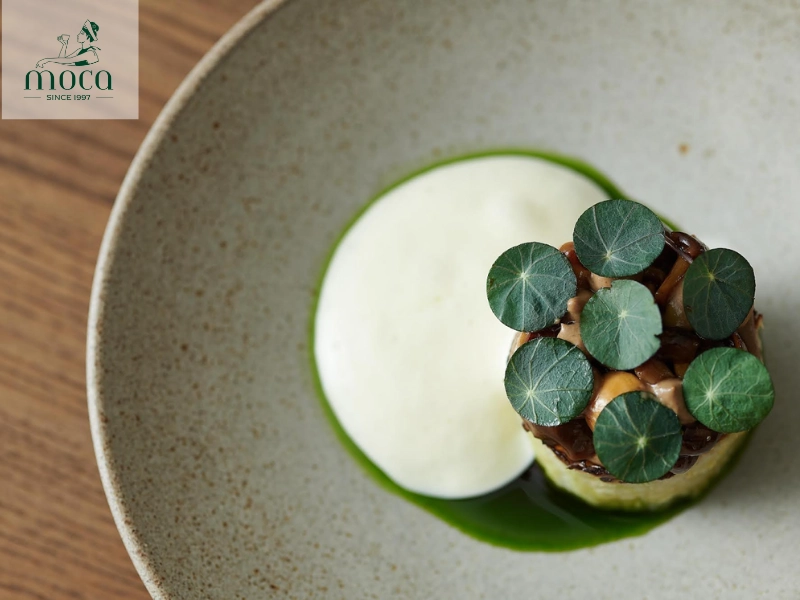
Vegetarian chefs push creative boundaries to meet Michelin standards
Chefs at the forefront of vegan Michelin restaurants are not just following a trend—they are shaping the future of fine dining. Their kitchens have become laboratories for innovation, where techniques like fermentation, dehydration, and smoking are used to unlock complex flavors from unexpected sources. These chefs aren’t constrained by tradition—they’re empowered by possibility.
Imagine the voice of a chef from a renowned Michelin star vegetarian restaurant sharing their journey: the early resistance, the experiments with unfamiliar ingredients, the joy of crafting a dish that silences even the most skeptical carnivore. Their philosophy would likely center on honoring ingredients, minimizing waste, and delivering a sensory experience that surprises and delights.
As diners become more open to plant-based cuisine, the demand for chefs who can elevate vegetarian food to Michelin standards will only increase. Vegetarian Michelin restaurants are proving that vegetarian fine dining is not only here to stay—it’s leading the way toward a more creative, sustainable, and inclusive culinary future.
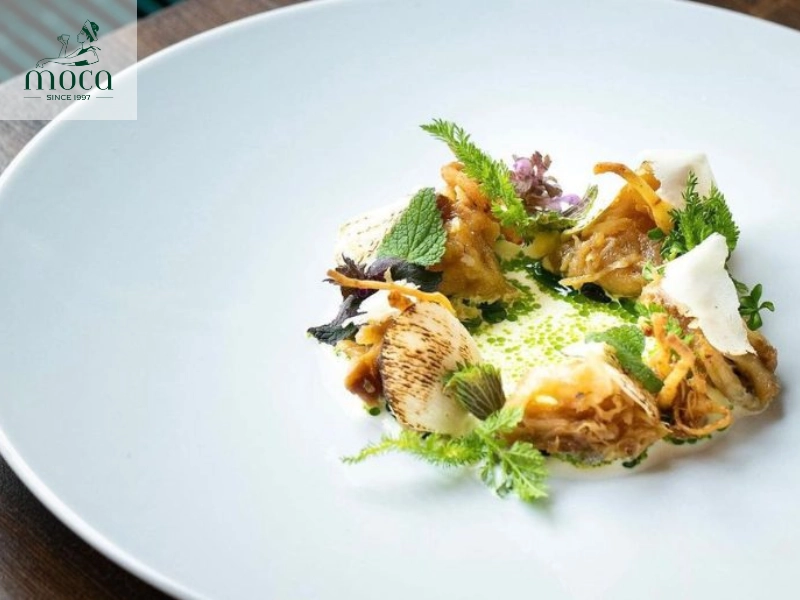
Plant-based cuisine: turning challenges into fine dining innovation.
5. The future of vegetarian fine dining
The future of vegetarian cuisine within the Michelin Guide and the broader fine dining scene looks exceptionally promising. As plant-based diets become more mainstream, we are likely to see a growing number of Vegetarian Michelin restaurants earning stars and gaining international acclaim. This recognition not only elevates the status of vegetarian cuisine but also encourages chefs worldwide to embrace plant-based cooking as a serious and innovative culinary art form.
The Michelin Guide has always been committed to rewarding excellence, regardless of the ingredients used. As more chefs showcase the incredible potential of vegetables, legumes, grains, and fruits, the guide is expected to expand its recognition of Vegetarian Michelin restaurants—rewarding those that consistently offer exceptional dining experiences driven by creativity, technical mastery, and vision.
Moreover, the increasing importance of sustainability and ethics in the food industry is closely aligned with the values of many vegetarian establishments. Diners are becoming more mindful of their choices, seeking restaurants that prioritize environmental responsibility, ethical sourcing, and health-conscious menus. In this regard, Vegetarian Michelin restaurants are often leaders—pioneering sustainable practices and redefining what modern fine dining can look like.
Looking ahead, we can anticipate a more inclusive and diverse culinary landscape, where vegetarian cuisine is not only accepted but celebrated at the highest levels. The Michelin Guide will continue to play a pivotal role in shaping this future by spotlighting innovative, plant-based dining experiences across the globe.
As more chefs challenge outdated perceptions and unlock the true potential of plant-based ingredients, the path is clear: the future of fine dining is greener, more creative, and more conscious. Vegetarian Michelin restaurants are at the forefront of this transformation, paving the way for a new era in global gastronomy.

Vegetarian cuisine is shaping the future of sustainable and innovative fine dining.
Vegetarian Michelin restaurants are becoming a powerful force in the world of fine dining, proving that plant-based cuisine can be just as refined, flavorful, and innovative as traditional meat-based dishes. These establishments highlight the versatility of vegetables, fruits, grains, and legumes, combining exceptional technique with bold creativity. By prioritizing sustainability, ethical sourcing, and seasonality, vegetarian chefs are not only pushing culinary boundaries but also reshaping the future of gastronomy. As more diners embrace plant-based lifestyles, the presence and influence of Vegetarian Michelin restaurants will continue to grow—offering delicious, thoughtful, and inspiring dining experiences that reflect the evolving values of today’s food culture.
If you're looking for more reviews on 2 Michelin stars restaurants, don't hesitate to check out Moca Dining for more insights!
For reservations and more information, simply visit Moca Dining’s official website or contact us directly. We're here to make your dining experience truly memorable.
Contact details
Moca Dining
16 Nha Tho, Hang Trong Ward, Hoan Kiem District, Hanoi
Tel: 0819961997 | 08.1997.2023
